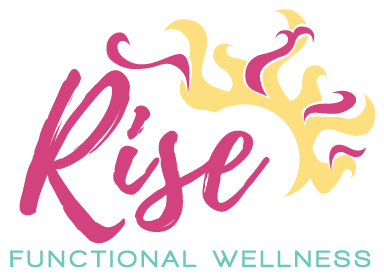May is Mental Health Awareness Month.
- 1 in 5 people will experience Mental Illness in their lifetime.
- 5 in 5 people will experience a challenge that will disrupt their mental health at some point in their life.
- People who have been through trauma are 3 times more likely to experience depression.
- More than 300 million people worldwide have been diagnosed with depression.
Two of the biggest challenges when it comes to treating mental health is the stigma associated with seeking treatment and second, barriers to accessing care. Mental illness is treatable through a variety of modalities including psychotherapy (talk therapy with a licensed provider) and psychiatry (medications). Not every therapist or treatment intervention will be an appropriate fit, therefore, it may require some trial-and-error to find what works best for you. Don’t give up if the first thing you come across isn’t a match.
If you are still unsure about seeing a medical provider for help, you can begin by focusing on my 5 pillars of wellness. Movement, nourishment, sleep, connection with others and purposeful activity provide improvements in our physical, mental and emotional health. And many of these activities can be accessed at relatively little to no cost and without stigma attached.
Movement/Exercise
A 2007 study found that, in general, exercise was equivalent to an antidepressant for the treatment of Major Depressive Disorder.
Benefits of exercise:
- Exercise boosts endorphins, your natural mood enhancing hormones.
- Regular exercise has been shown to reduce the effects of anxiety.
- Exercise provides goal-directed and purposeful activity.
- Exercise can provide a sense of accomplishment.
You don’t need extreme forms of exercise to benefit, even moderate walking or housework can provide many of the mood-boosting benefits mentioned above.
Nourishment
Food is fuel, even for our brain. It is essential to consume nutrient-dense foods that provide good sources of vitamins and minerals.
- There is clear evidence that demonstrates the relationship between mood disorders, such as anxiety and depression, with GI dysfunction. The best way to help balance the gut microbiome is to eat a diverse amount of plants.
- A drop in blood sugar can cause you to feel irritable, tired and depressed. It is important to emphasize slow-digesting carbs such as whole grains, oats, rice, nuts and seeds.
- There is consistent evidence to show that a Mediterranean-like diet and lifestyle may reduce the risk of depression (Dr. Chocano-Bedoya, Harvard Health Publishing).
While no one specific diet is proven to reduce or eliminate the risks of mental health problems, it is important to focus on quality foods to help boost your mood and cognition.
Sleep
Insufficient sleep can lead to:
- Feeling irritable or angry
- Feeling overwhelmed
- Lacking interest, motivation and/or energy
- Losing patience
- It is recommended that adults get 7-9 hours of sleep each night. It is also important to follow proper hygiene tips to ensure better quality sleep.
Connecting with others
Social connection improves physical, mental and emotional health and wellbeing.
- One landmark study showed that a lack of social connection has a greater negative impact on health than obesity, smoking and high blood pressure (Dr. Emma Seppala, ccare.standford.edu).
- Those who report strong social networks have lower levels of anxiety and depression.
- Loneliness is the number one report reason people seek counseling.
- The benefits from connection are related to one’s sense of connection (and quality), not by the quantity of those connections or relationships.
Purposeful Activity
Research shows that there is a correlation between purposeful activity and mood. Therefore, filling our days with activities that keep our brains and bodies active, as well as those that bring us joy, are critical to our physical and mental health.
- Research shows that people who engage in hobbies are less likely to suffer from stress, depression and other mood disorders.
- Performing a task with an end-goal in mind creates purpose. Consider cooking a healthy meal, going for a hike, or drawing, painting or sculpting.
- Purposeful activity can help provide a routine to our days and help us feel a sense of accomplishment when we are done.
- Perform an active of kindness for someone else. Not only will you make someone else feel better, but these acts of kindness have also been shown to reduce the giver’s stress level, release endorphins and oxytocin (the feel good chemicals/hormones) and lower rates of depression.
There are so many activities that you can participate in, but make sure it is meaningful and enjoyable for you!
These are some simple steps you can take today to help improve your mental health.
The most important takeaway from all of this: Quality matters. Focus on improving the quality of your movement, your nutrition, your sleep, your connections and your activity and you will notice improvement in your mood.
Also, know that there is nothing wrong with seeking help. Having a licensed professional to talk to or to prescribe beneficial medications may help you to integrate the above steps on your own. Oftentimes the first step is the hardest. Make sure you reach out for support.
Below I have included some of the national numbers for help. As always, this information does not replace that of a medical professional. If you need emergency help, please call 911 or your local emergency contact.
National Suicide Prevention Lifeline, 1-800-273-TALK (8255)
SAMHSA Treatment Referral Helpline, 1-877-SAMHSA7 (1-877-726-4727)

